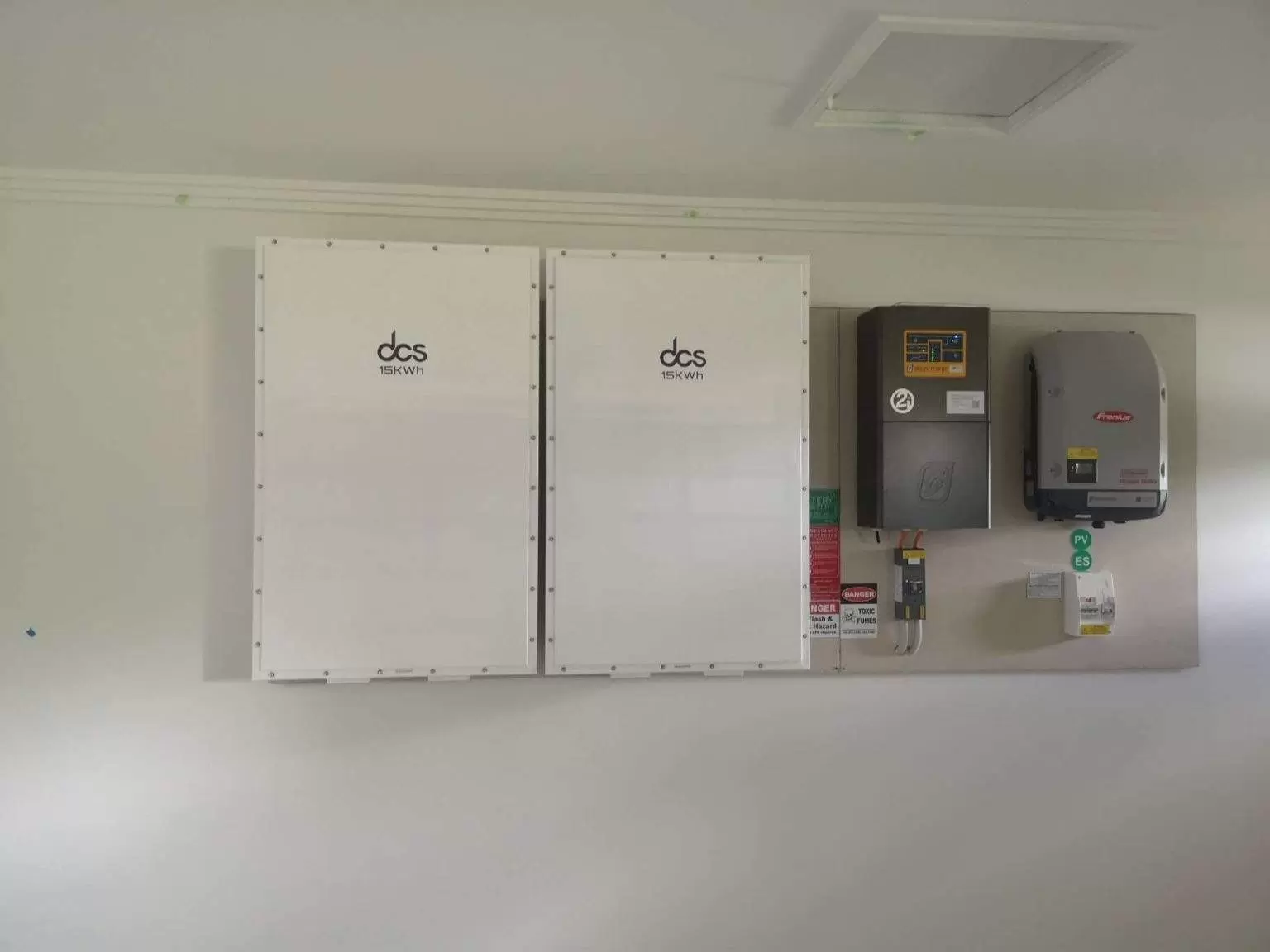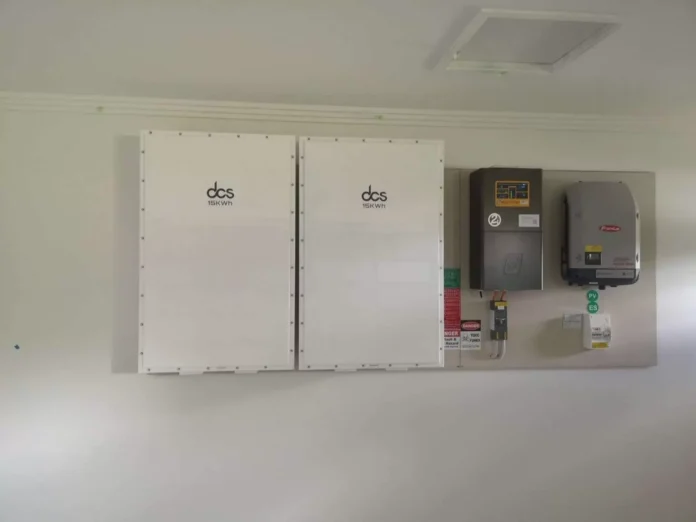Power Your Life with the Sun: The Best Batteries for Solar off Grid Harnessing solar energy to power our homes and lives is an increasingly popular choice for those looking to reduce their carbon footprint and achieve energy independence. The heart of any solar energy system is its battery storage, allowing you to keep the lights on even when the sun goes down. But with various options on the market, how do you choose the best battery for your solar power system? In this comprehensive guide, we dive deep into solar batteries, comparing types, understanding sizing, evaluating costs, and addressing maintenance to help you make an informed decision.
Understanding Solar Battery Basics
At the core of solar power systems lies the indispensable component: the solar battery. This innovative technology captures and stores the energy generated by solar panels during daylight hours, ensuring a continuous power supply even when sunlight is unavailable. Key factors to consider when selecting a solar battery include:
Its capacity indicates the total amount of energy it can store.
The depth of discharge (DoD) defines how much stored energy can be utilized without harming the battery’s lifespan.
Efficiency measures the amount of usable energy relative to the energy stored.
The battery’s overall lifespan predicts how many years or cycles it can effectively operate before performance degrades.
Additionally, cost plays a significant role, affecting both the upfront investment and the long-term value of the battery within the solar energy system. Each attribute influences a battery’s suitability for specific applications and needs, guiding homeowners and businesses in their quest for the most appropriate solar storage solution.
The Lead-Acid Legacy and Its Modern Alternatives
Lead-acid batteries, once the cornerstone of solar energy storage solutions, have paved the way for more efficient and sustainable alternatives. Known for their cost-effectiveness and reliability in off-grid setups, lead-acid batteries’ lower depth of discharge and shorter lifespans now prompt users to consider newer technologies. Advancements have introduced lithium-ion, saltwater, and nickel-iron batteries, each offering distinct advantages over their lead-acid counterparts. Lithium-ion batteries, in particular, have risen to prominence due to their higher energy density, longer operational life, and superior efficiency. Meanwhile, saltwater and nickel-iron options present environmentally friendlier choices, with lower toxicity levels and a more sustainable lifecycle. Despite their initial higher investment, these modern alternatives promise a greener, more efficient, and ultimately more cost-effective solution for solar energy storage, marking a significant shift from the lead-acid legacy towards a future where renewable energy systems are more powerful, resilient, and aligned with environmental sustainability goals.
Lithium-Ion Batteries: The Off-Grid Champion
Lithium-ion batteries have taken centre stage in the realm of off-grid solar power systems due to their unparalleled efficiency and performance. Their higher Depth of Discharge (DoD) and energy density allow users to store and use more energy, optimizing the capacity of solar installations. This attribute is particularly beneficial in off-grid setups where maximizing the use of stored solar energy is critical. Moreover, these batteries are characterized by their reduced physical footprint, offering a space-saving solution without compromising power output. The adaptability of lithium-ion technology to varying temperatures and its maintenance-free nature further cements its status as the go-to choice for those seeking reliable off-grid solar storage solutions. While the initial investment may be higher compared to traditional options, the long-term benefits, including decreased replacement frequency and enhanced performance, present a compelling case for their selection. Their robustness and efficiency not only make them the preferred choice for individuals aiming for solar independence but also contribute significantly to the sustainability and feasibility of off-grid solar systems.
Best Batteries For Off Grid Solar Power
For those venturing into the realm of off-grid living, the choice of battery is paramount. Among the frontrunners, lithium-ion batteries emerge as the premier option for their superior energy density and longevity, catering well to the demands of remote locations where efficiency and reliability cannot be compromised. Additionally, the adaptability of the Best Batteries for off Grid Solar Power variants provides an appealing blend of safety and cycle life, making them an excellent investment for off-grid systems. Saltwater batteries also hold a unique position, offering a sustainable and non-toxic alternative. Their ability to handle deep discharge cycles with minimal degradation makes them suited for environments where green living is a priority. For those seeking durability and environmental sustainability, nickel-iron batteries present a viable option. Despite their lower efficiency and higher initial cost, their exceptional lifespan and resilience to overcharging and deep discharges can justify the investment for long-term off-grid setups. Choosing the right battery involves a careful consideration of your energy needs, environmental values, and budget constraints, ensuring your off-grid solar power system supports your lifestyle seamlessly and sustainably.
 Sizing Your Solar Battery System for Optimum Independence
Sizing Your Solar Battery System for Optimum Independence
Accurately sizing your solar battery system is a cornerstone of achieving optimal energy independence. This process begins with a detailed assessment of your daily energy consumption patterns and the specific energy needs of your household. By understanding your average daily power usage, you can tailor a solar battery system that not only meets your current energy requirements but also has the flexibility to adapt to future changes or unexpected increases in demand. It’s imperative to factor in the efficiency losses in energy conversion and transmission to ensure the system’s capacity accurately reflects your true energy needs. Additionally, consider the typical weather patterns and sunlight availability in your area, as these environmental factors significantly impact the amount of solar energy your system can harvest and store. Engaging with a professional to perform these calculations can help mitigate the risks of under-sizing or over-sizing your system, both of which can lead to unnecessary expenses or insufficient power supply. By strategically sizing your solar battery system, you position yourself to harness the maximum potential of solar energy, paving the way for a more resilient and self-sufficient lifestyle.
The Cost Factor: Evaluating Investment and Returns
Investing in a solar battery system entails more than just the initial outlay; it’s a financial commitment with long-term implications. Although the upfront cost can be substantial, the return on investment (ROI) often justifies this expenditure, especially when considering the potential savings on utility bills over time. Factors such as the system’s efficiency, durability, and the reduction in reliance on grid electricity contribute to overall savings. It’s also crucial to explore available government incentives, rebates, and tax breaks that can significantly reduce the initial cost. Additionally, with advancements in technology, the price of solar batteries is expected to continue decreasing, making solar energy more accessible. When evaluating solar batteries, it’s important to calculate not only the purchase and installation costs but also to factor in the expected lifespan and maintenance requirements of the system. This comprehensive approach ensures a clear understanding of the total lifecycle cost, providing a more accurate picture of the investment’s true value. Ultimately, by carefully considering these aspects, homeowners and businesses can make a financially sound decision that aligns with their goals for energy independence and sustainability.
Solar Battery Maintenance and Care for Longevity
Maximizing the operational lifespan of your solar battery involves adopting a proactive approach to maintenance and care. While modern battery technologies like lithium-ion are generally maintenance-free, they still benefit from routine checks to ensure they’re operating within their ideal conditions. Temperature is a critical factor; batteries should be kept in environments that avoid extreme cold or heat, as these can affect performance and durability. For batteries that do require maintenance, such as certain lead-acid types, regular inspections are necessary to monitor fluid levels and clean terminals to prevent corrosion. Ensuring that your solar battery system is not consistently operating at its maximum capacity can also prolong its life. This involves managing your energy consumption and considering the addition of more storage capacity if you frequently deplete your batteries. Furthermore, the integration of a battery management system (BMS) can provide real-time monitoring of battery health, offering insights into performance and early warnings of potential issues. Adhering to these maintenance practices can significantly enhance the efficiency and lifespan of your solar battery, contributing to the overall reliability of your solar power system.
Batteries For Off Grid Solar Power
Choosing the ideal Batteries for off Grid Solar Power necessitates a nuanced approach that weighs both performance and environmental impact. Lithium-ion batteries shine in off-grid scenarios, offering superior energy density and cycle life, which are crucial for areas lacking grid connectivity. For those prioritizing sustainability alongside performance, lithium-iron-phosphate (LiFePO4) batteries are a standout, combining long life spans with a safer chemical composition. Meanwhile, saltwater batteries emerge as an eco-friendly choice, free from heavy metals and capable of enduring deep discharge cycles with grace. While nickel-iron batteries present a more niche selection due to their heftier upfront cost and lower efficiency, their durability and nearly indefinite lifespan appeal to users committed to long-term off-grid living. Each battery type brings its unique set of benefits to the table, underscoring the importance of aligning battery selection with specific off-grid needs, lifestyle aspirations, and ecological considerations.
FAQs
1. What is the expected lifespan of solar batteries?
The lifespan of solar batteries varies significantly by type, with ranges typically from 5 to 15 years. Factors such as the battery technology, maintenance practices, and usage patterns influence this span. Lithium-ion varieties usually offer longer service life within this range due to their robust construction and efficient energy management.
2. Is it possible to expand a solar battery setup after initial installation?
Yes, scalability is a built-in feature for many solar battery systems. Planning for potential expansion from the onset is advisable for easier integration. This flexibility allows for adjustments based on evolving energy needs or advancements in battery technology.
3. Can solar batteries provide power during electrical outages?
Solar batteries are designed to supply power autonomously, making them invaluable during electrical disruptions. This capability ensures a continuous energy supply, securing off-grid and backup power requirements and enhancing energy resilience in varying conditions.
Conclusion
Embarking on a solar-powered journey offers not just independence but a commitment to sustainability. The pivotal role of the battery in this venture cannot be overstressed, as it directly influences the efficiency, longevity, and economic viability of your solar setup. The landscape of options, from traditional lead-acid to cutting-edge lithium-ion and eco-conscious alternatives, presents a variety of paths tailored to meet different energy needs and environmental ethics. This choice, pivotal as it is, should be informed by a comprehensive understanding of each technology’s benefits and limitations, balanced against personal or organizational energy goals. As we look towards a future illuminated by renewable energy, making educated decisions on solar storage will anchor our strides towards a greener, more resilient energy infrastructure. Let the sun power your aspirations, knowing your investment in the right battery technology fosters a sustainable legacy for generations to come.
| Other Good Articles to Read |
| Niche Blogs Connect |
| Blogs 97 |
| Blog Stitution |
| Blogs Unplugged |
| Blogs Cotch Rouge |
| Blog Signatr |
| Blog Sintonias |
| Blog Zilla |
| Consumer Forums |
| Finance Forums |
| G Blogs |
| Too Blog |
| Related Business Listings |
| Contact Directory |
| Local Business Profiles |

